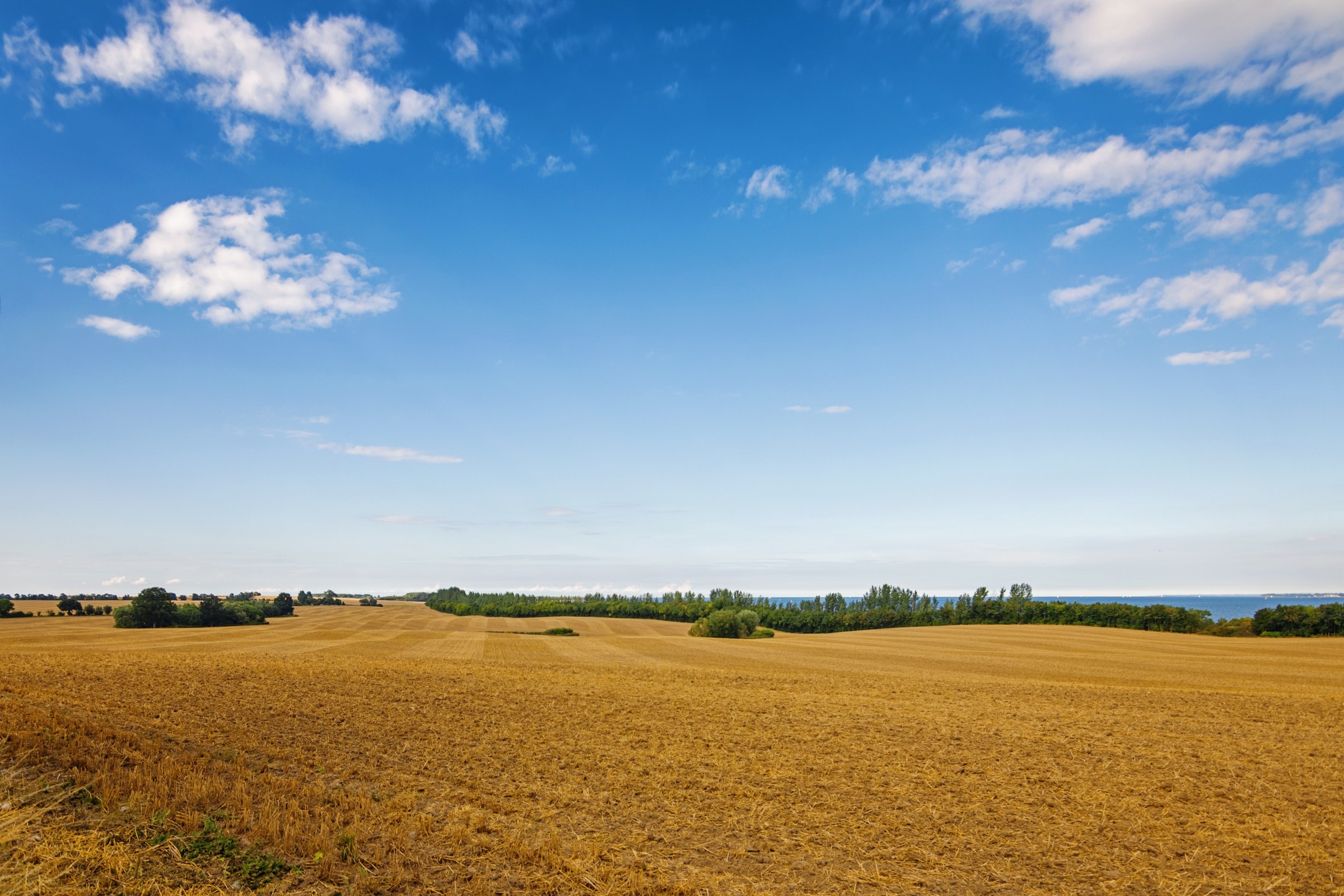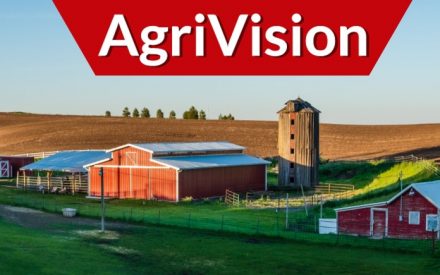Host Katie Wantoch and Simon Jette-Nantel, former Assistant Professor at UW-River Falls and Extension Farm Management Specialist, discuss whether a land purchase is a profitable acquisition compared to other retirement investments for a farm couple.
View Transcript
Katie Wantoch
This is UW Extension’s Farm Management AgriVision Podcast. I am Katie Wantoch, Agriculture Agent with UW-Madison Division of Extension. I will be chatting with fellow Extension Educators as we answer questions from farmers and share our knowledge and expertise on how you can improve your farm management skills. Today I am joined by Simon Jette Nantel professor at UW River Falls and Extension Farm Management Specialist. Welcome Simon to the podcast.
Simon Jette Nantel
Thank you for having me Katie.
Katie Wantoch
Simon, today our question was asked by a farm couple that has been farming for 40 years, they are in their early 60s and in good health. The couple milk 60 cows and owns 200 acres. For the past 20 years, they have rented 52 acres from a neighbor paying $75 per acre. The corn ground averages between 140 and 160 bushels per acre. The owner offered to sell them the 52 acres for $150,000. They have the cash to purchase the land and do not have other debt or payments to make. They are planning to sell their cows in the next five years, and then transition to growing crops for a few years before they retire. Simon, do you think they should purchase the neighbor’s 52 acres?
Simon Jette Nantel
It’s a very good question. Usually when we talk about purchasing land, then liquidity risk comes into play. For this couple here it doesn’t seem to be an issue. Buying land, usually land increases in value. So usually it’s a profitable thing. Now the question here is, is it the most profitable thing for them to do? And how well does it fit with their long term plans. It doesn’t mention here whether they do have somebody to take over or to transfer to farm to or not. So then, so that should be a major consideration in this decision. But assuming that they don’t have, they haven’t identified anybody to transfer the farm to so it’s just this couple here and they want to transition out of dairy, keep cropping for a while. And before retiring for good from, from farming. I would say right now the deal they have for renting this land for $75 per acre, if that’s the deal that still holds, holds with them, this neighbor and the value that is being put on the table 150 grand, it adds up to not quite three grand per acre. 75, renting at $75, a piece of land that is worth three grand. It’s a good deal. In that case, the rent adds up to about 2.6% of the value, suggests to me that the rental agreement is actually a good deal. So you may want to actually try to maintain that rental agreement. And that might actually be more profitable than actually purchasing the land. So that’s one thing to consider whether that agreement can be maintained in the future. The other thing if we talk about buying that land, is that this couple, and looking at it purely from an investment point of view, this couple seems to have already most of their retirement funds, or their, their equity tied up in land or farm assets. And so do you want to have all of your, all of your equity, all of your retirement fund invested in land, or will you be better off, you can take that 150 grand, and keep it invested elsewhere or invest it elsewhere, that would be offer you some diversification. And depending on the level of risk, you’re willing to take with that non-farm investment, you could possibly get a higher return than what you would get by purchasing the land. So this opportunity to maintain some diversification maybe maintain the highest level of liquidity for that 150 grand to be considered by this couple here, because purely from an investment point of view, I would look at that and say you might be better off looking for non-farm investments. Then on that note, I would say another way to look at the situation given that we have very low interest rates right now on mortgages. You could even consider taking on a mortgage to purchase that land and maintain some investment off the farm. And that might because you know if you’re only paying 3% on your mortgage, if you can keep your money invested elsewhere, that will give you at least 5, 6, 7 percent. That might be what’s most profitable from a purely investment point of view. And that’s only looking at you know, the numbers and all that now, the last thing I would like to mention is that it also depends on how those 52 acres fit with what they want to do. If they really enjoyed, being out there cultivating the land and you know, harvesting and planting and being out there. And so basically this 52 acres means for them a more enjoyable preretirement if you want, then it may well be worth it to actually say, you know, yes, we could have made more money as investing, as investors elsewhere, but we really want it. Those are those non-monetary benefits that you have to factor in as well, as much as the idea of maybe maintaining the option to transfer to farm if the right person shows up, or if their children decide to come back to farming. So there’s some non-monetary consideration there, but I would look at other investments out there outside or the possibility to even take a loan to finance this purchase.
Katie Wantoch
Yeah, you know, the purchase of farmland is probably one of the largest investment of farmers gonna make, you know, regardless of the stage and age, that they are at the stage of farming that they’re in. So it’s really long term purchasing of real estate. So they know that does certainly would concern me that this farm couples in their 60s, and yes, they’ve worked forty years farming, but you know, what does their retirement look like? What is the income going to be when they, when they do retire? And if they are going to use up their retirement income that they have saved to date? What will they have then to live off of going forward?
Simon Jette Nantel
Yeah, and it depends, as that’s why the diversification element to me is important here. Because if we assume that then they all, they have all of their retirement funds, all their equity into farmland or farm assets. You know, as you said, if we’re 10 years out from full retirement, then it means that 10 years, in 10 years, you will have to sell a number of those assets. And well, where will the land market be exactly in 10 years, could be in a down downturn, or it could be on the upswing, but we don’t really know, versus having a more diversified portfolio of investment is going to be a little safer and might help you get the liquidity you need to finance the first few years of retirement.
Katie Wantoch
Yeah, it’s looking at that economic viability versus financial viability and financially, it might work out for them in the long run. You know, what are their goals? And certainly, as a farm couple, discussing those goals together and making sure they’re on the same page is always important as well.
Simon Jette Nantel
Exactly, as I said, there’s a monetary and then you know, at the end, those are huge decisions, oftentimes they become, they become emotional, you know, in order to justify those. And you have to know what those non-monetary benefits would be. How would that purchase impact your lifestyle? Will it become a burden to have to harvest more land and to take care of more land later down the road? Or do you see it as something enjoyable, and you’re just one of those that wants to be on the farm and spend hours on your tractor until, until the last hour?
Katie Wantoch
Yeah, well, farmers truly never really retire. They just kind of shift a little bit in the hours that they might work and there might be an opportunity for them to rent this farmland and at that point when they do retire, and that could be their cash flow for them. So there are pros and cons to purchasing land and they should certainly weigh those. All right, well, thanks, Simon for your time today.
Simon Jette Nantel
Thank you, Katie.
Katie Wantoch
For more Extension “AgriVision” podcasts or resources to improve your farm management skills, check out https://farms.extension.wisc.edu/. Thanks for listening.
Related Resources
Information in this article was originally published as part of the Agrivision column in Wisconsin Agriculturist.
Extension resources


 AgriVision Episode 20 - Building resiliency helps weather ups, downs of markets
AgriVision Episode 20 - Building resiliency helps weather ups, downs of markets


